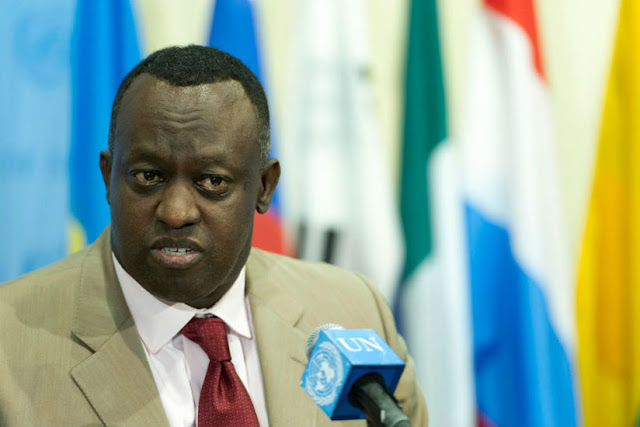In a bid to boost agriculture and fight hunger and poverty among poor rural farmers, Rwanda targets to adopt mechanization on 50 percent of agriculture land by 2020, according to the ministry of agriculture top official.
Rwandan agriculture remains substantially undercapitalized, with extremely low levels of mechanization contributing to agricultural productivity far below the level achieved in other parts of the developing world.
Tony Nsanganira, Rwanda state minister in charge of agriculture told reporters on Saturday that the idea of mechanization is to increase agriculture productivity.
“Agriculture contributes 35 percent of GDP of our national economy. Most industries depend on agriculture produce. Industries contribute 20 percent to the GDP. We need mechanized farming to reduce a trade deficit of 1 billion U.S. dollars incurred by the country while importing food stuffs,” he said.
Nsanganira urged all stakeholders in agriculture mechanization sub-sector to invest massively in agricultural machines because they play a key role in total factor productivity in farming.
“It is common knowledge that agricultural mechanization is a key and almost indispensable pillar for making farm operations efficient and productive.”
Currently, 18 percent of agriculture land in Rwanda is under mechanization, and plans are under way to increase it 25 percent by next year, according to the ministry of agriculture officials.
“Modern agriculture in Rwanda would be impossible without advanced machinery solutions along the entire agricultural value chain,” Nsanganira noted.
The ministry had taken the initiative to purchase several farm machines including tractors, combine harvesters, rice transplanters, and power tillers.
Rwanda Agriculture Board (RAB) says that agriculture mechanisation in the country has not yet been fully exploited by farmers and the private sector.
The initiative is, therefore, being viewed by sector analysts as a big step toward achieving the second Economic Development and Poverty Reduction Strategy (EDPRS II) objectives, besides boosting productivity and creating more 200,000 off-farms jobs.
EDPRS II gives priority to rural development, especially creating of more off-jobs to transform the country into a middle-income economy.
According to Louis Butare, director general RAB, the country needs more investors in the agriculture sector especially in the areas of mechanization.
“If agriculture remains dependent on primitive technologies and implements like the hoe, it will be difficult for our country feed the teeming population, and play a significant role in the international market for value-added agricultural products,” he said. – Xinhua

























